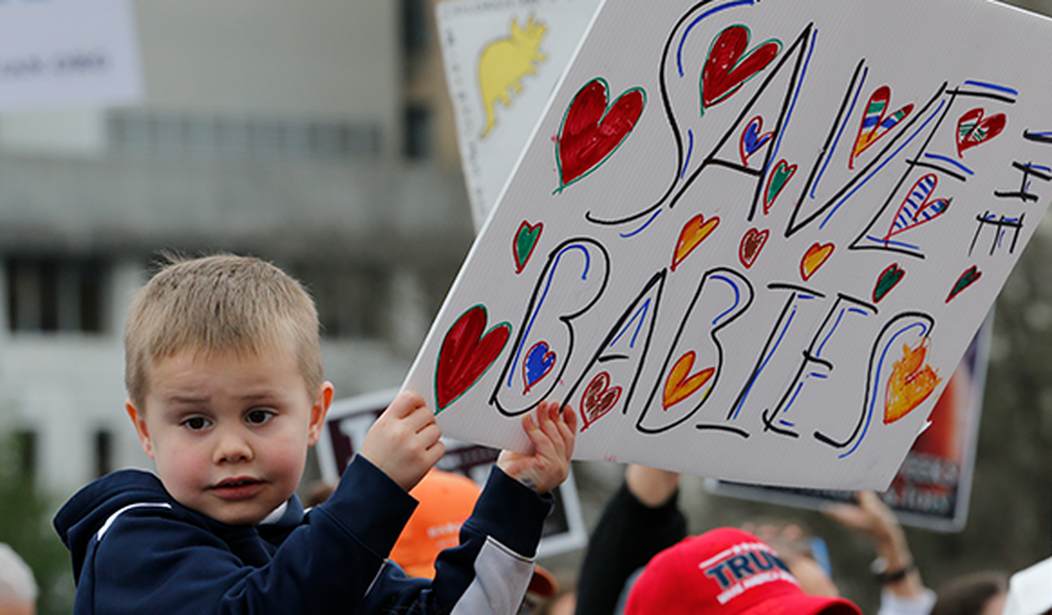Last year, I spoke on the issue of abortion at Calvary Chapel in Chino Hills, California. During the Q&A, a young woman asked a question about rape and abortion. In the process of explaining my opposition to a rape exception to an abortion ban, I said that I believe we live in a world of trade-offs, rather than a world of problems and solutions. Upon seeing the exchange in a video posted on YouTube, Bob submitted the following question:
“We live in a world of trade-offs.” Indeed we do. So answer me this. There’s a science lab that’s burning down, and inside is a 10-year-old child, and next to him is a container full of 100 fertilized human embryos. You can save either the embryos or the child, but not both. What value do you put on life? Is it quantity alone? Or is it something else?
This is a common pro-choice hypothetical, which Bob has taken from Ellen Goodman without attribution. As a thought experiment, it tends to intimidate pro-lifers. However, it should not be intimidating at all because it rests on the faulty assumption that our value as humans is contingent upon the intuitive emotional reactions and moral judgments of other humans. Here is the argument in a nutshell:
1. Any human walking into the burning research lab and seeing the 10-year-old would intuitively run to save the child.
2. The fact that the choice would be made intuitively is conclusive evidence that either …
a. The embryos are not fully human, or
b. If fully human, the embryos are not persons in the same sense as the 10-year-old.
This idea that the choice of saving one human calls into question the humanity of the one not chosen can be easily defeated. I always do it by responding with a variation of the hypothetical, rather than a direct answer to the hypothetical. A typical variation goes something like this:
There’s a science lab that’s burning down. Mike happens to be walking by and decides to go inside to see if anyone is in peril. In one corner of the lab, he sees his daughter, Carolyn. In another corner of the lab, he sees Bob, a pro-choice antagonist. Mike can save either Carolyn or Bob, but not both. What does he do?
Recommended
Obviously, Mike saves Carolyn. The fact that Mike’s choice was made intuitively cannot be taken as evidence that Bob is not fully human. Nor is it evidence that Bob is less of a “person” than Carolyn. In fact, the pro-life position does not draw any meaningful distinction between humans and “persons” (because no one can). To do so would suggest that some humans are more valuable than others. And that leads us back to Bob’s previous question about human value.
Bob phrases the question improperly when he asks, “What value do you put on life?” Put simply, I do not put value on human life. That is not something I am permitted to do. Humans already have their value at the point of conception. That value is derived from their basic human nature. In other words, their value is based on the kind of thing they are, not the kinds of things they can do. Human beings are not obligated to earn their rights by performing – or by doing anything that would inspire me to “put” value on them.
On one occasion, I used the Mike and Carolyn variation of the lab hypothetical to respond to a young man attending another of my pro-life lectures in California. He objected to the variation saying, “that’s different, a man has a duty to save his own daughter.” Actually, my variation reinforces the thesis that the young man had failed utterly to grasp:
Just as our emotions are irrelevant to determinations of human value, our duties are irrelevant to determinations of human value.
Take our charitable decisions as an example. The decision to feed my family and not feed the homeless does not deprive the homeless of their basic human worth. My decisions about which humans to help have no bearing on the inherent value of those not helped.
I believe these are all valid points. But Scott Klusendorf raised the best argument ever leveled against the burning research lab hypothetical. Scott noted that no one would ever enter the lab and destroy the embryos on the way to saving the child. Nor would anyone considering my variation walk over to the other corner of the lab and slit the throat of the pro-choice antagonist. Hence, Goodman’s thought experiment is irrelevant to the issue of abortion.
The abortion debate is about the intentional killing of innocent human beings, not the refusal to save them. We cannot let Bob change the subject.

























Join the conversation as a VIP Member